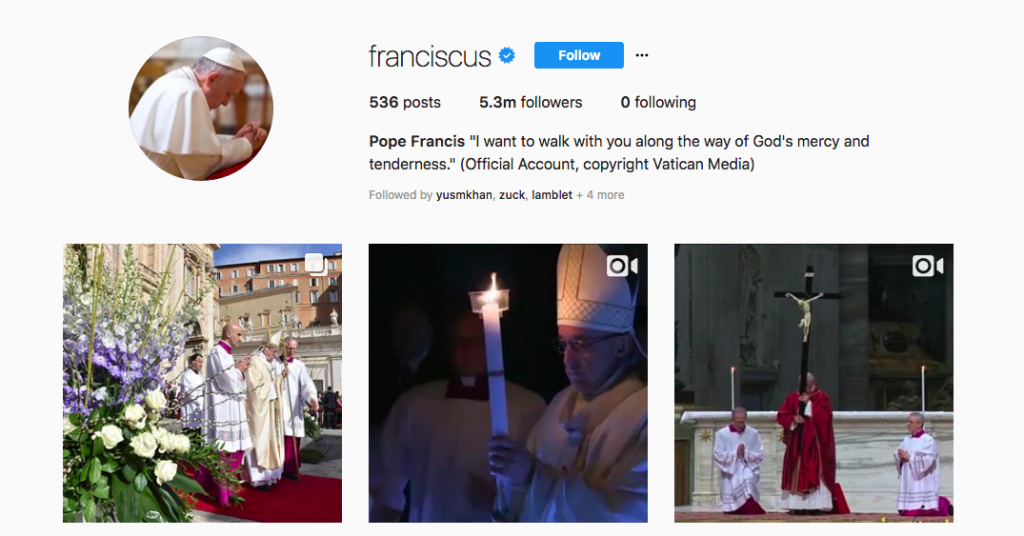The Social Media Revolution – Political Use
In the final part of her 3 part series, Lauren looks at the influence social media has on politics. It is revolutionising the way in which leaders communicate with people, becoming a helpful tool to engage a more varied demographic in political issues, elections and debates.
Political Use – Closing the Gap and Changing the Game
Despite the spread of fake news itself, social media is a platform where all sorts of people can influence others. Politicians and governments have seized the opportunity provided by social channels to further their political agenda. It closes the gap between everyday people and those making the big decisions, by creating an easy platform where both parties can communicate in the public eye. While people from across the globe can follow trends and upcoming stories, politicians can listen to the thoughts and criticisms made by their people.
Social media has allowed us to stay up to date with political news in a more convenient way. Most of us have no need to leave our chosen social media channels to see the latest news. Breaking stories are mostly in our newsfeeds and on each individual news outlet’s own social channels.
The beauty of social media is the large audience, whether you are 16 years old in South Africa or 78 years old in the USA, social media works for all. In 2021, 3.78 billion people around the globe are active social media users. The potential reach is larger than ever before. Most millennials are used to hearing that our generation has the lowest voting turnout compared to other generations. Whilst that is still mainly true, social media has provided a more accessible, fun and attractive way to keep in touch with politics. The way in which Corbyn (cleverly) used social platforms to woo young voters was an exceptional example of this. No doubt this type of campaign will become more apparent in future elections. Small changes can make big impacts on the larger overall political landscape. The two-way conversation and speed of interaction through social means that campaign managers can use the instant feedback to provide better coverage for their target audiences. Strategists will monitor ‘likes’, what is shared and what is down-voted, hopefully resulting in a better understanding of genuine voter issues.
Various platforms are effective for different reasons: many people use Facebook and YouTube to address policies and larger issues; Instagram on the other hand is perfect for providing a personality for politicians. 140 out of 193 foreign ministers from different countries currently have Instagram accounts, as of April 2017! Pictures are a powerful tool, which many government officials use to their advantage, including Pope Francis, who is one of the most-followed world leaders on Instagram, ranking third overall!
Politicians’ use of social media can be insightful, or a misguided disaster – who can forget Trump re-tweeting controversial videos from Britain First, resulting in outrage and calls for him to be barred from the UK! But, if used in the right way, politicians are humanised and effectively connect with their followers.
Engagement with citizens is key for any successful leader. India’s Prime Minister, Narendra Modi, who has 40M followers on Twitter (and is the most followed political leader on Instagram with 11.5M followers), clearly knows how to use social channels effectively. Modi has even created an app, which is available on iTunes where you can follow all the latest updates, contact him directly, and it’s available in 12 Indian languages, and even in English. With such an array of languages in one country, having your social media all in one place for free is evidence of a politician taking full advantage of the tools available.
Global Change
It’s no longer only government officials, but the general public who can influence environmental, financial and political matters and create global change. Communicating and networking are social media’s bread and butter. It has helped to accelerate certain movements and has positively changed the way we protest. Social platforms create a virtual space, which allows dialogue in the midst of conflict.
The fast-paced nature of social media has shortened our attention spans and encouraged immediate response; no sooner has one big story gathered pace than another headline breaks, making it difficult to keep up. Once the initial hype is over, interest gradually dies down, as people flit to the next big thing, but it has certainly helped raise awareness for some lesser-known issues: Remember the Ice Bucket Challenge back in 2014? Not only did it raise millions, but it also focused public attention on ALS. It does not stop there, from Occupy Wall Street, to the #MeToo campaign, to the Women’s March, social media continues its impact.
Social media is a powerful political tool, which can harness change when used effectively, and as part of a multimedia campaign, including prime time TV, talk shows, front-page news and constituency visits.
Social media is very empowering on many levels. It has closed the gap between politicians and everyday people. Instant communication has proven effective for feedback and research purposes, whilst providing a connection between people. It definitely has flaws, and the battles against fake news and privacy breaches continue, but we cannot ignore the life changing effects that social media has on how we communicate, vote, listen and share.
Regardless of my love / hate relationship with social media, I continue to use it to connect with friends, learn new things, share my views, find jobs, shop online, access information… the list goes on! There is no denying that social media has become an indispensable, irreplaceable tool!
Read parts one and two here:
The Social Media Revolution – Artificial Intelligence
Will artificial intelligence be a helpful intervention, or an invasion of privacy?
The Social Media Revolution – Fake News
What role does social media play in spreading propaganda?
Lauren Atwell-Thomas
Studied Philosophy at the University of ReadingLoves American Football, travelling and buffalo wings!
Currently working towards a career in the civil service, specifically a future in public policy.




Please log in or sign up to comment